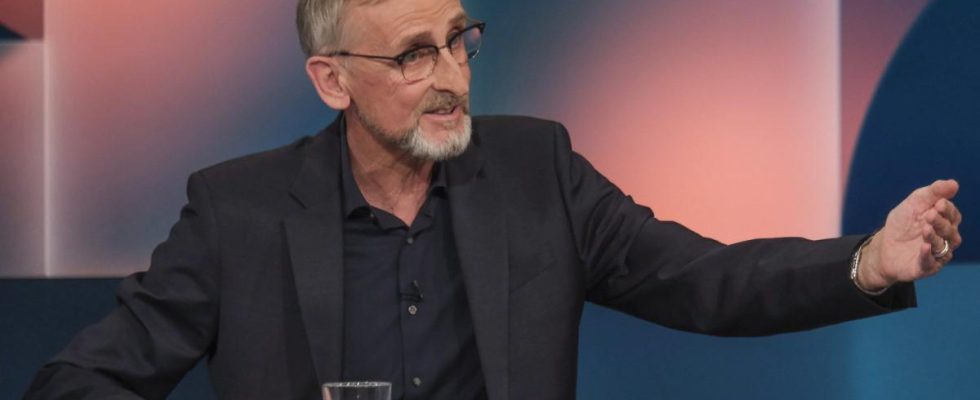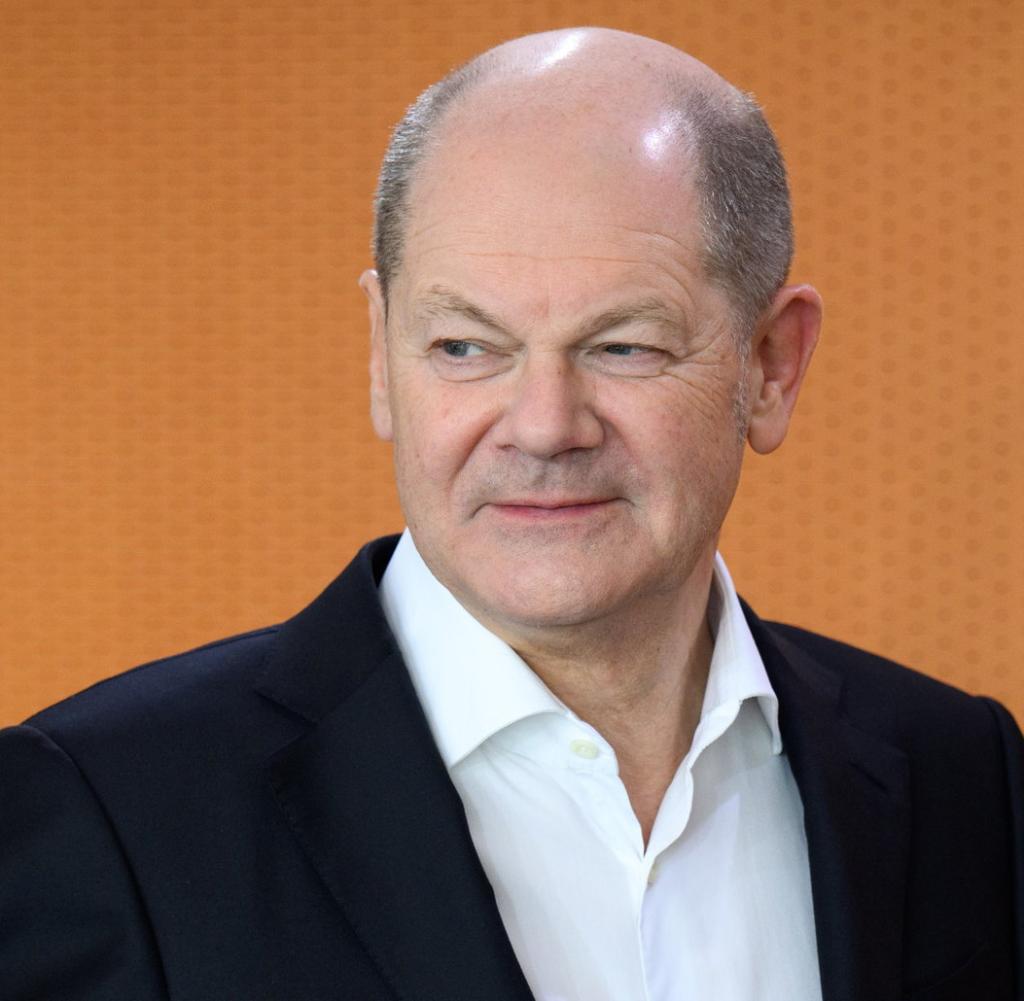bE-payment card, upper limit or agreements with third countries – there are enough proposals to limit migration to Germany. Last week, the Prime Ministers met again with Chancellor Olaf Scholz for a “refugee summit”. The participants appeared to be forgiving afterwards. However, no one expected a rapid decline in asylum seekers in Germany. “Is that really the only way asylum policy works?” Louis Klamroth asked his guests at “hard but fair” this week.
The moderator invited, among others, the chairwoman of the Green parliamentary group, Katharina Dröge, the Berlin Social Senator Cansel Kiziltepe (SPD) and the Saxon Interior Minister Armin Schuster (CDU). The program also included migration expert Gerald Knaus, the Bavarian district administrator for the Günzburg district, Hans Reichhart (CSU) and migration researcher Özgür Özvatan.
Right from the start, Schuster made no secret of the fact that he sees Germany at its breaking point when it comes to accommodating asylum seekers. “We are beyond all limits,” warned the CDU politician. “Without a drastic limit, this year will not be able to go like this again.”
At the beginning of the program, Klamroth showed his visit to Michelbach in Rhineland-Palatinate. In the town with 90 residents, accommodation for 60 asylum seekers is to be built in an empty hotel. Residents have been protesting against the plans for weeks and fear that the location will change. In an interview with Klamroth, the former mayor criticized that she had been taken by surprise by the district’s decision.
Schuster also reported on similar cases in Saxony, such as empty youth homes with space for up to 300 people in a town with 150 residents, which he was considering using due to a lack of space. “You come up with the most absurd decisions,” admitted the Interior Minister. “There’s nothing smart about it anymore, but I no longer have the chance to make smart decisions.”
Dröge appeared surprisingly unimpressed by the problems on site. The situation is currently “challenging but doable” for most municipalities, said the Green politician. It seemed as if the Bundestag member was clinging to a case in the Osnabrück district that she repeatedly cited as a positive example. At the end of February there was a referendum for refugee accommodation in the town.
Neither Dröge nor Kiziltepe really wanted to acknowledge the resistance among the population against the accommodation of asylum seekers that is currently stirring in many places. The Green politician attributed the rejection, for example, to a lack of transparency on site. Kiziltepe also identified poor communication as a cause.
Afterwards, Günzburg District Administrator Reichhart reported that he had encountered resistance from the population in many places. In his district with around 130,000 inhabitants, he has to accommodate 1,200 people from Ukraine in addition to 1,600 asylum seekers. “We are a region that is already really fighting for housing,” explained the CSU politician. Accommodation in gyms or large facilities is the “worst case” due to the lack of privacy. He rejects many offers of accommodation. “We want to avoid everything that just one drop breaks the camel’s back,” said Reichhart.
Migration researcher Özvatan did not want to identify a limit when it came to accommodating asylum seekers. “First of all, it’s definitely something emotional,” explained the sociologist. Many people are incorrectly distributed. However, there is also an opportunity in young immigrants, especially for places with an aging population.
Green politician: “Flexible upper limit” is not legally feasible
“You can come with me to Saxony, where you can see the upper border,” replied Schuster. In some schools, teachers would no longer be able to do the integration work. The CDU politician has been calling for a “flexible upper limit” for years. “If we have a war in Ukraine, then it has to be a million. But then there are three years after that in which we only make 50,000,” Schuster explained his proposal.
“In the end, this is not serious politics that you are doing here,” accused Dröge of the CDU man. The proposal is not compatible with the Basic Law, European law or international law. Instead, more financial support from municipalities and better integration into the labor market are needed. When Dröge suggested solving the problem through a better distribution of people in the EU, Schuster just grinned with amusement.
Things got heated again in the group when it came to the integration of refugees into the job market. Klamroth had invited Björn Wiese, a baker from Eberswalde in Brandenburg. He trained refugees in his company and thus gained new employees. Wiese criticized the “mass toleration” of asylum seekers.
It leads to uncertainty for companies if it is not clear how long people will stay in Germany. Wiese also criticized deportations, even though workers are needed. At the same time, migrants from abroad are coming to Germany again: “Why don’t we just take the people who are here?”
For CDU man Schuster, the explanation was simple. You shouldn’t send the message that it doesn’t matter what you say at the German border. And Reichhart also advocated keeping asylum and labor migration apart. “The overload doesn’t come from us saying: We’re bringing people to Germany to work for us,” said the district administrator. “There are no protests anywhere when I say I’m bringing in nursing staff, I’m bringing in people who work in the industry.”




